Choose park
Check in
Check out
Guests
Check in/out
Guests
Search
Nestled in the heart of southern England, the New Forest is a haven for wildlife enthusiasts and nature lovers alike, so it's only right to have a guide to wildlife in the New Forest.
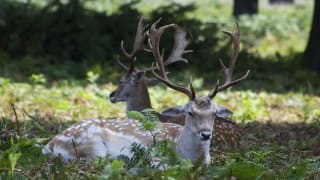
Spanning over 200 square miles of ancient woodlands, heathlands, and grasslands, this enchanting landscape boasts a rich tapestry of flora and fauna. From the majestic fallow deer to the elusive nightjar, the New Forest is teeming with an array of species just waiting to be seen, so why not begin discovering? Whether you're an avid birdwatcher, a budding botanist, or are simply seeking a tranquil escape into nature, our ultimate guide to New Forest wildlife will provide you with everything you need to explore and appreciate the natural wonders of this extraordinary region the next time you're on holiday in Hampshire!
To help you learn more about wildlife in the New Forest, embark on an unforgettable adventure at the New Forest Wildlife Park—perfect if you're staying nearby. The park is a 30–40-minute drive away from the Sandy Balls Holiday Park, so it's the perfect place for a day out with the family, your partner, your friends, or even a solo trip.
The beauty of the natural world comes to life in an immersive and educational setting nestled within the serene landscapes of the New Forest. The New Forest Wildlife Park offers a unique opportunity to get up close and personal with various native and exotic species. You can wander through lush enclosures and marvel at the playful otters, elusive wolves, and majestic owls which call this park home. With its commitment to conservation and education, it not only provides an entertaining experience for visitors of all ages but also fosters a deeper understanding and appreciation of the delicate balance of our ecosystems.
Whether you're a wildlife enthusiast or a family looking for a day of discovery and fun, the New Forest Wildlife Park promises an adventure filled with wonder and inspiration. So, let's take a sneak peek at what you can expect to find here…
If you want to know the different types of New Forest wildlife you can find in the park, let's take a look at some of them and what you might not have known about them…

Did you know that this otter species uses special calls to communicate with each other and can vocalise 14 different sounds?
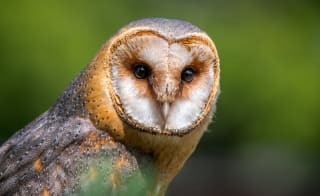
Did you know that a Barn Owl eats an average of four small mammals per night, which amounts to 1,460 per year?
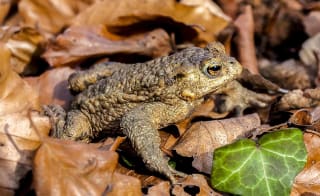
Did you know that tadpoles contain toxins that make them unpleasant for predators to eat, so they can survive living in the deep ponds containing fish?

Did you know that the Eurasian Eagle Owl is considered the world's largest owl by wingspan and can prey on animals as large as foxes or small deer?

Did you know that the Eurasian otters close their ears and noses while diving underwater?

Did you know that a group of badgers is called a clan, cete, or colony?

Did you know many of these animals are being reintroduced into several European countries through a successful captive breeding programme?
Find out more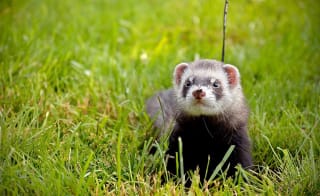
Did you know that ferrets can sleep 18-20 hours daily?
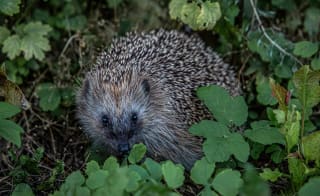
Did you know hedgehog babies are called hoglets and are born naked and blind?

Did you know that they can jump distances of up to 20 ft between the trees?
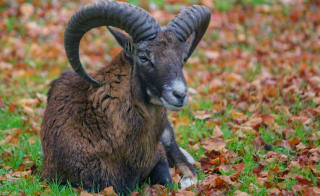
Did you know they are a wild sheep species originating from islands in the Mediterranean?

Did you know they have such strong eyesight that they can spot a mouse up to 250 ft away?

Did you know that the name Sika comes from "Shika", the Japanese word for deer?
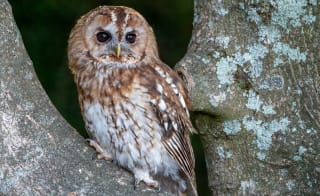
Did you know that the iconic owl call is a conversation, with one saying 'Twitt' and the other replying 'Twoo'?
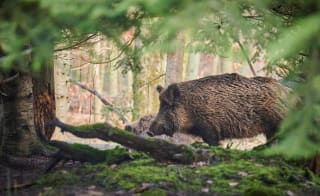
Did you know that baby boars are called 'boarlets' and have stripy coats until they reach 5-6 months old?
Looking for a unique animal encounter that you'll always remember? The New Forest Wildlife Park offers a variety of different experiences, but one of the top things to do is try the keeper experiences. These allow you to gain an up-close look at the amazing animals and learn more about their daily lives and habits.
Alongside one of the knowledgeable keepers, you can get to know the New Forest animals in a one-to-one experience. You'll have plenty of time to ask questions and tailor your visit to your specific animal interests.
It's not only one animal you can be a keeper for the day, but two. Here are some of the animals that you can choose from:
Wolves
Pine Martens
Wallabies
Otters
Deer
If you've ever wanted to become a keeper, what better place to start your journey than the New Forest Wildlife Park? Come along and discover some of the best animals in the New Forest.
Located near Lyndhurst, around a 30-minute drive from the Sandy Balls Holiday Park, the New Forest Reptile Centre is dedicated to protecting rare snakes and lizards while promoting their reintroduction across the country.
If you're a reptile fan or just want to learn something new, the New Forest Reptile Centre features special outdoor pods that provide natural habitats for sand lizards, smooth snakes, and adders. These pods offer a unique opportunity to observe these elusive reptiles up close.
Not just this, but in collaboration with the Amphibian and Reptile Conservation Trust (ARC), you can experience 'A Date with Nature' at the New Forest Reptile Centre. Using hi-tech gadgets, you can peer into the tree-top nests of the New Forest Goshawk and watch their every move – from eggs hatching to chicks leaving the nest.
Become the newest reptile expert and learn more about another type of New Forest animal. So, what are you waiting for? Start planning your next unforgettable wildlife experience!

Did you know that the adder is the UK's only venomous snake? But don't worry, as its venom is usually of little danger to humans.

Did you know the common lizard is the only reptile native to Ireland?

Did you know that grass snakes are the UK's only egg-laying snake?
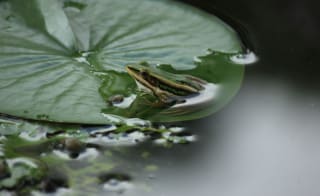
Did you know this frog will make an alarm call when startled, which sounds like a yelp?

Did you know that the 'Natterjack' gets its name from the loud rasping call made by the male in spring (breeding season)?

Did you know that newts can regenerate limbs, eyes, hearts, intestines, and more? It's amazing!

Did you know this lizard digs burrows for shelter, night-time refuge and hibernation?
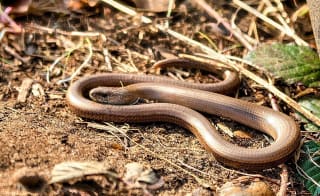
Did you know that these worms are ovoviviparous, so they lay eggs internally but give birth to live young?

Did you know this snake is a constrictor, coiling up around its prey to subdue and crush it to death? But don't worry, it's harmless to humans.
Alongside meeting the fantastic reptiles, why not embark on a delightful circular walk perfect for the whole family at the New Forest Reptile Centre?
Set amidst the enchanting woods of the New Forest and starting from the Reptile Centre car park, follow the red marker posts along the main gravel path. This route is smooth and accessible, ideal for all ages.
Or, why begin your adventure from the Millyford Bridge car park? Pick up the trail at the picturesque pond, adding a scenic touch to your walk.
Whether you start at the Reptile Centre or Millyford Bridge, the Discovery Trail promises a charming journey through the heart of the New Forest, providing a perfect outing for families and nature enthusiasts alike.
As you've already seen, the New Forest offers a rich habitat for a diverse range of wildlife. Its varied landscapes provide the perfect environment for woodland creatures, large mammals, and an impressive array of bird species.
While often overlooked, birds are a crucial component of the New Forest ecosystem, and the forest plays a vital role in their survival.
Birdwatching enthusiasts are in luck, as heathlands, nature reserves, and woodlands are excellent spots for observing a wide variety of bird species.
With around 100 species of breeding birds and about 20 additional avian visitors that grace the forest during the winter months, the New Forest is an ideal destination for birdwatching and discovering the beauty of its feathered inhabitants.
Are you ready for the birds of the New Forest?

Did you know that they have a distinctive mewing call that adds to the natural soundscape of the New Forest?
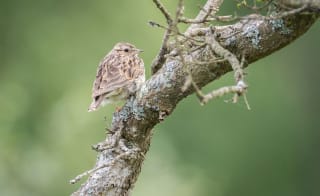
Did you know they are among the few birds singing in the dark?

Did you know this is the UK's largest finch and has a huge bill, also known as the "bulldog of the bird world?"

Did you know this small warbler has returned from the brink of extinction in the UK in the last 50 years?

Did you know that their scientific name comes from the Latin words for butcher (lanius) and sentinel (excubitor), referring to their habits of impaling prey and perching on prominent bushes?
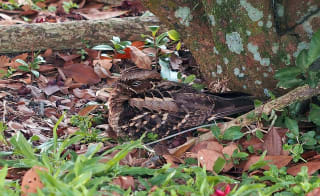
Did you know that they are nocturnal birds who hunt for food at dusk and dawn?
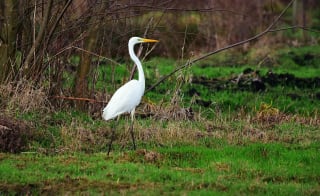
Did you know that all wading birds have long legs that allow them to stay clear of the water while they look for food?
For a top-tier experience, why not encounter birds face-to-face for a real-life New Forest birds experience?
Situated on the Hampshire-Wiltshire border, Forest Falconry offers an immersive falconry experience day, where you can enjoy flying some of nature's most majestic birds of prey.
Get up close and personal with a diverse collection of owls, hawks, and more. You'll have the opportunity to handle and train these magnificent birds, gaining insights into their welfare, conservation, and evolutionary adaptations.
Set against the stunning backdrop of the New Forest, your day promises to be unforgettable, so for one of the best New Forest experiences, why not try it out the next time you're on holiday here?
Have you found everything that you need to know about New Forest wildlife? Think again, as here are some of our most frequently asked questions…
Yes, there are plenty of wild animals in the New Forest, especially in the National Park. For example, there are a range of birds, deer, reptiles, and so much more!
Yes, there is rare wildlife in the New Forest. You might not have known, but the New Forest is a Special Protection Area for Birds and one of the last places where you can find rare and endangered species, including the Woodlark and Nightjar.
If you want to go on the many beautiful walks that you can find in the New Forest, you'll be glad to know that it's generally a safe place to go. Don't worry, as there are no bears in the New Forest!
Link to walks in the New Forest related page
The New Forest has many unique places to see animals, and the forest is the best place to do so. The northern regions are especially great for their heathland and woodland wildlife, including birds of prey and nightjars.
Now that you're ready to explore the stunning New Forest wildlife, what are you looking forward to the most? Whether it's birds, reptiles, or mammals, you'll never run out of animals to discover! The only thing left to do is book your next New Forest visit to see these animals whenever you want. What will you discover first?
Whilst you wait... just think about being in your swimmers, the sun's out and the smiles are big
Enter your details to make a payment or request a change
Don't remember your details? Check your confirmation email, or speak to our team
Are you an owner with us? Click here to login